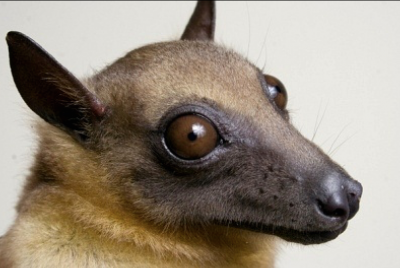News
Latest Lion Aid News
The Ebola Bush Meat connection
Friday 10th October 2014
|
Eating me can harm you and many others
You can hardly watch a news broadcast or open a newspaper these days without hearing “experts” talking about Ebola. For sure, the world is worried – the USA and the UK among many other nations are now instituting checks in airports to screen people arriving from various African countries. Anyone with a fever is then given more intensive health checks. One person in the USA coming from western Africa recently died in Dallas (and may have infected many others while he was visiting friends) and a nurse in Spain contracted Ebola while tending to missionaries hospitalized after they were infected in western Africa. For good measure, the Spanish authorities put down the Spanish nurse’s dog. Other UK and USA citizens (health care workers and even a journalist) who contracted the disease in western Africa were flown back home to receive specialized hospital care. Meanwhile the death toll in the western African source countries has almost reached the 4,000 mark with many more infected. Their presidents have called for greater international help, and medical teams have been dispatched. People infected with Ebola have an 80% mortality rate and there is no cure in sight. Containment alone will cost of scores of millions of dollars. Of course it is important to save human lives, but these efforts do not address the root cause of the disease. Patient Zero (as health officials call the first infected person who started this outbreak) was a young child who either touched a captured bat or consumed meat from one. Ebola and a number of other dangerous diseases originate from wildlife, especially those that are caught and eaten as “bush meat”. And the bush meat trade is huge in western Africa – it was estimated in 2010 that the annual trade is worth $250 million in Ghana and $148 million in Cote d’Ivoire. Recently, Steve Osofsky (a wildlife veterinarian) published an article with CNN mentioning that people should avoid eating monkeys and bats. He says “A significant number of people could likely be deterred from eating high-risk species if real political will and resources were brought to bear. For those consumers of high-risk bushmeat who simply have no other dietary options, we need to redouble our development efforts, replacing dependence on wildlife with safe and nutritious alternatives suitable to the local context.” Osofsky is right, and there should be a concerted campaign to educate people all over the world about the risks of consuming bush meat, coupled with providing meat from safe alternatives. This would achieve two goals – conserving wildlife and saving human lives. Otherwise we will continue to see disease outbreaks like Ebola in the future and we will have to spend scores of millions of dollars treating victims of the inevitable next outbreak. Prevention is always better than the very costly cures. Picture credit: Pinterest.com If you have not already signed up to our mailing list, you can add your name here and keep up to date with our ongoing work and, most importantly, DONATE to support our work to conserve the remaining fragile lion populations. Thank you. Tags: Ebola, Fruit bats, Categories: Events/Fundraising, Domesticating Animals |
Add a comment | Posted by Chris Macsween at 15:32




